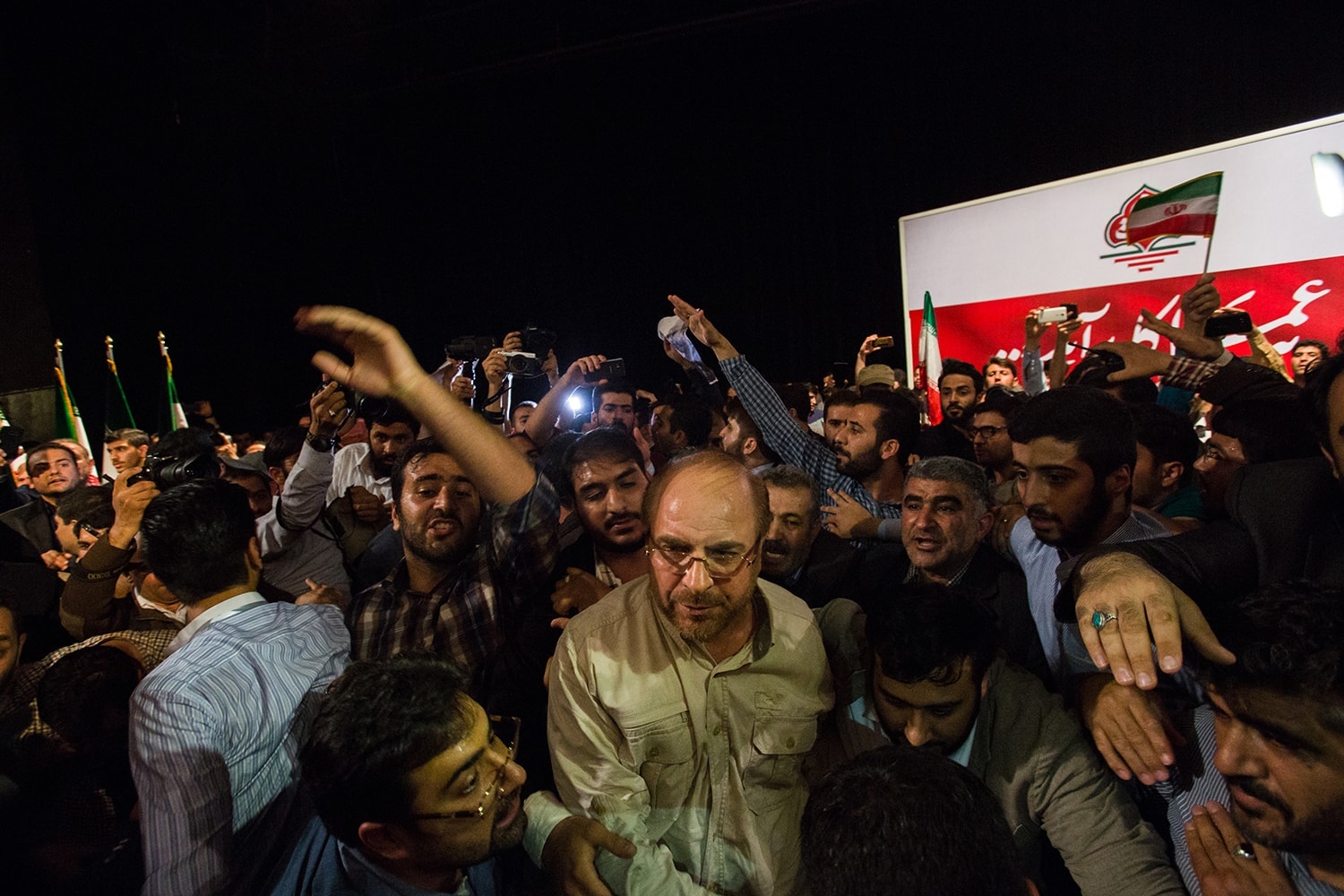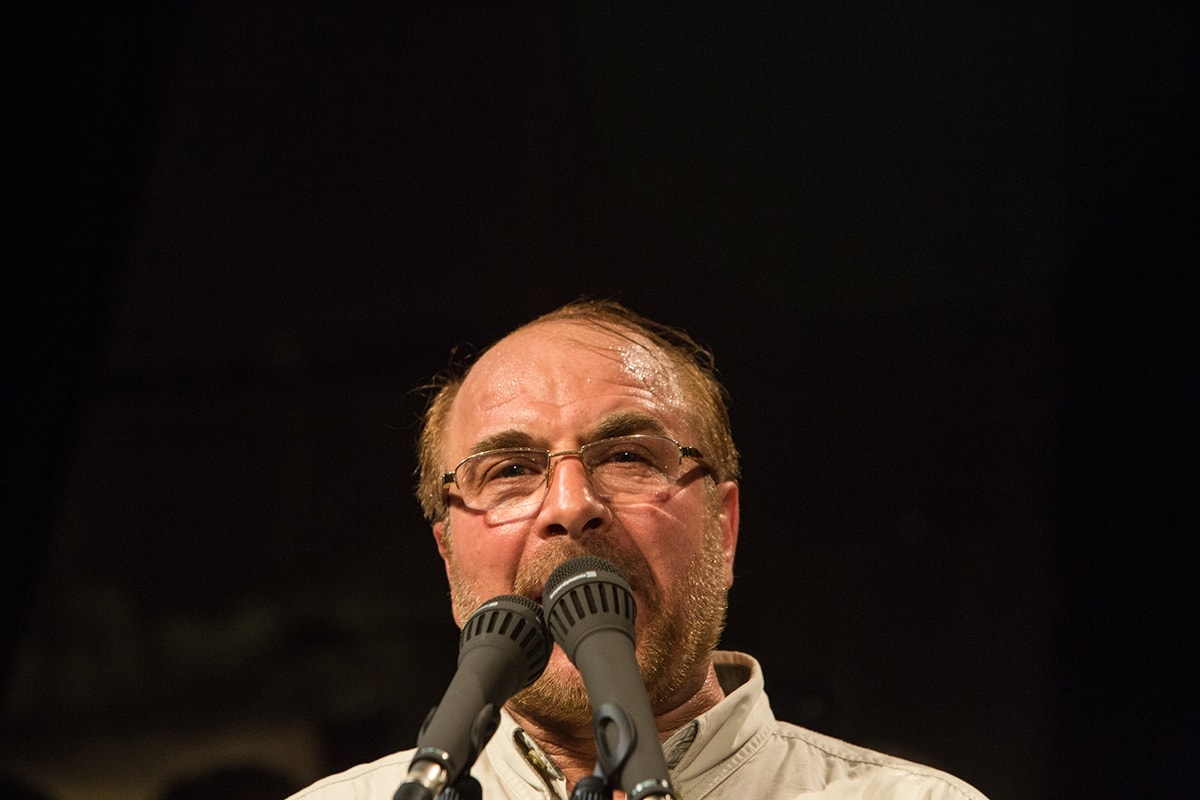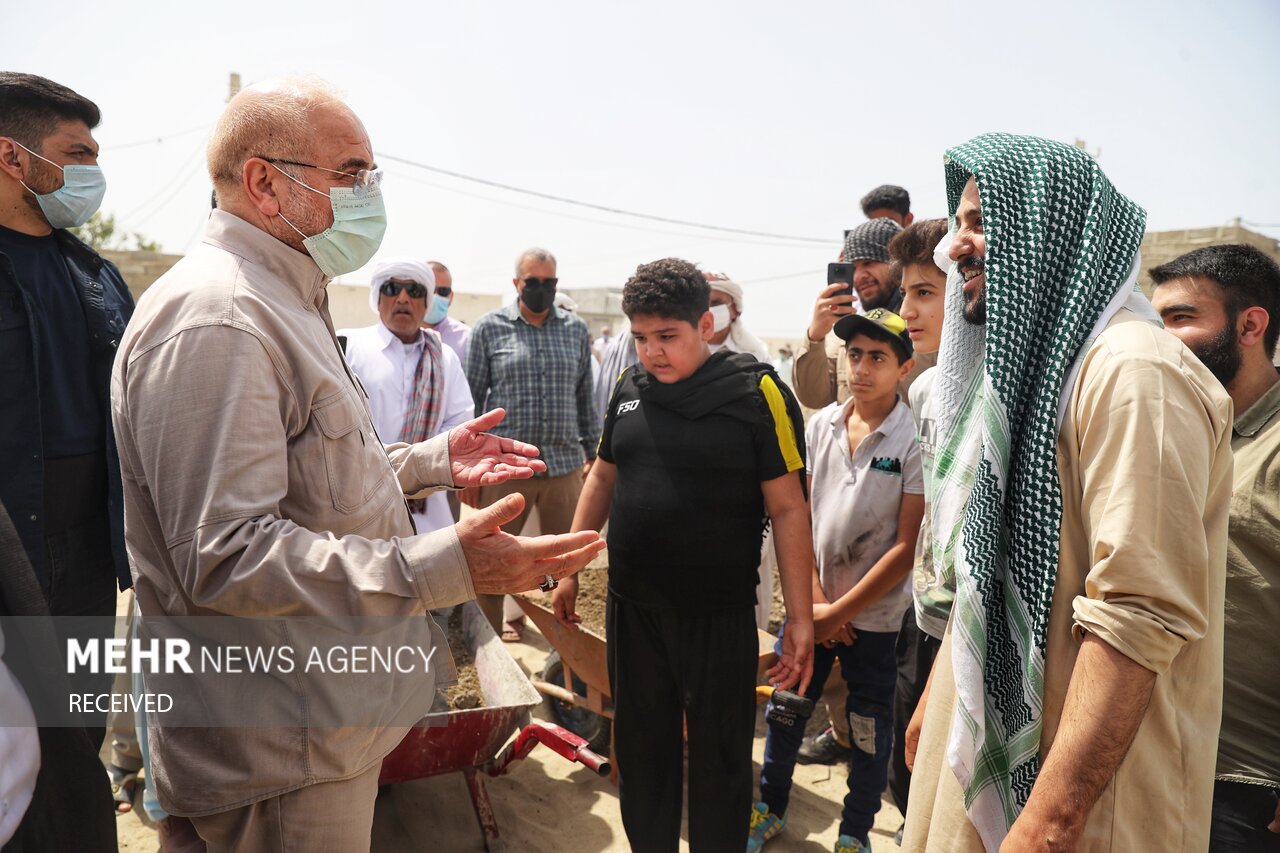Mohammad Bagher Ghalibaf: Navigating Iran's Political Labyrinth
In the intricate and often opaque world of Iranian politics, certain figures emerge with a consistent presence, shaping the nation's trajectory through various critical junctures. One such prominent individual is Mohammad Bagher Ghalibaf. From a distinguished military career to holding key positions in law enforcement and urban management, and now serving as the Speaker of Iran's Parliament, Ghalibaf's journey reflects the complex interplay of power, ideology, and public sentiment within the Islamic Republic. His multifaceted career offers a unique lens through which to understand the dynamics of the Iranian establishment, revealing both the opportunities and the profound challenges faced by those at the apex of its political structure.
This article delves into the life and career of Mohammad Bagher Ghalibaf, exploring his rise through the ranks, his significant contributions, and the controversies that have marked his path. By examining his roles and the context in which he operated, we aim to provide a comprehensive understanding of his influence and the broader implications of his actions on Iran's domestic and international standing.
Table of Contents
- Mohammad Bagher Ghalibaf: A Biographical Sketch
- From Military Uniform to Police Chief: A Pivotal Transition
- The Tehran Mayoral Tenure: Ambition and Controversy
- Ascension to Parliament Speaker: A New Chapter
- Ghalibaf's Political Aspirations and Presidential Bids
- International Relations and Strategic Partnerships
- Controversies and Public Scrutiny
- Navigating Iran's Political Labyrinth: Ghalibaf's Future
Mohammad Bagher Ghalibaf: A Biographical Sketch
Early Life and Military Roots
Mohammad Bagher Ghalibaf, born on August 23, 1961, emerged from the crucible of the Iran-Iraq War, a conflict that profoundly shaped a generation of Iranian leaders. His early career was deeply embedded within the Islamic Revolutionary Guard Corps (IRGC), a powerful military and economic force in Iran. His ascent through the IRGC ranks was swift and indicative of his strategic acumen and leadership capabilities. He was initially appointed as the commander of the IRGC Najaf Headquarters in Kermanshah, a significant operational base. This early role provided him with critical experience in military command and logistics. Subsequently, his dedication and performance led to his promotion to deputy commander of the Basij Resistance Force, a volunteer paramilitary organization closely affiliated with the IRGC. The Basij plays a crucial role in internal security and ideological mobilization within Iran. In 1982, Ghalibaf was appointed commander of the Nasr Division of Khorasan, a pivotal role during the war years. His leadership during this period further solidified his reputation as an effective military officer. He later worked in the command of the 25th Karbala Division, continuing his involvement in key military operations. These formative years in the IRGC provided Mohammad Bagher Ghalibaf with an extensive network of contacts and a deep understanding of Iran's security apparatus, which would prove invaluable in his later political career.Personal Data
| Full Name | Mohammad Bagher Ghalibaf |
| Date of Birth | August 23, 1961 |
| Place of Birth | Torghabeh, Razavi Khorasan Province, Iran |
| Nationality | Iranian |
| Political Affiliation | Conservative |
| Current Role | Speaker of the Parliament of Iran (since 2020) |
| Previous Roles |
|
From Military Uniform to Police Chief: A Pivotal Transition
Following his distinguished military career, Mohammad Bagher Ghalibaf transitioned into a crucial civilian-military role, a move that underscored the Supreme Leader's trust in his capabilities. After the IRGC Air Force, the Supreme Leader appointed Ghalibaf chief of national police, or the Law Enforcement Force of the Islamic Republic of Iran (LEF). This appointment in 2000 was particularly significant given the political climate of the time. Ghalibaf’s selection was significant as his predecessor, Hedayat Lotfian, was ousted following widespread student protests. The student protests of 1999 had shaken the establishment, highlighting a need for a more professional and effective law enforcement body. Khamenei's decision to appoint Ghalibaf was a clear signal of confidence in his ability to professionalize the LEF and restore order, while also ensuring loyalty to the Supreme Leader's vision. This period allowed Ghalibaf to gain experience in managing a large civilian organization, dealing with public order, and navigating the complexities of internal security, all of which would prove invaluable in his subsequent role as mayor of Tehran.The Tehran Mayoral Tenure: Ambition and Controversy
Mohammad Bagher Ghalibaf's tenure as the Mayor of Tehran, from 2005 to 2017, was arguably the most defining period of his public service prior to becoming Speaker of Parliament. During his time as mayor, Ghalibaf oversaw significant infrastructure projects and urban development initiatives, earning him a reputation as an efficient and pragmatic administrator. He was credited with modernizing Tehran's public transportation system, expanding green spaces, and improving urban services. However, his mayoral years were not without significant controversy. One of the most heartbreaking scenes in Iran, security forces’ attacks on merchant sellers, was directly linked to policies implemented during his leadership. Ghalibaf was seen as the inventor of this inhuman mistreatment, a harsh approach to bypass society’s real problems, particularly those faced by street vendors and small merchants. Critics argued that these actions, often involving the forceful removal of vendors, reflected a disregard for the livelihoods of ordinary citizens and an attempt to project an image of order at any cost. Furthermore, allegations of financial impropriety surfaced during his time as mayor. Back in 2022, a leaked audio file of IRGC commanders discussing extensive financial corruption involving Ghalibaf during his tenure as Tehran mayor also caused an uproar in Iran. This leak reflected the deep connections between the IRGC and the country's political echelons, raising serious questions about transparency and accountability within the Iranian system. The accusations suggested that he spent most revenue of Tehran for his own publicity expenditures, rather than prioritizing the city's genuine needs. These allegations, though often denied or downplayed by his supporters, have continued to dog his career and remain a point of contention among the Iranian public.Ascension to Parliament Speaker: A New Chapter
Despite the controversies of his mayoral term and multiple unsuccessful presidential bids, Mohammad Bagher Ghalibaf's political career reached a new pinnacle in 2020 when he was elected as the Speaker of the Parliament of Iran. His election was a significant event, marking his return to a powerful position in the Iranian political structure. Ghalibaf won 219 out of 272 votes, decisively defeating ultraconservative challenger Ahmad Rastineh, who received only 36 votes. This victory demonstrated his enduring influence and ability to garner support within the conservative political faction. As Speaker of the Parliament of Iran, Ghalibaf holds a crucial role in the legislative process, overseeing parliamentary debates, guiding legislation, and acting as a key figure in national policy-making. His position places him at the heart of Iran's political decision-making, influencing everything from economic reforms to foreign policy. Ghalibaf is widely said to be close to Supreme Leader Ali Khamenei and enjoys his confidence. This close relationship is a significant asset, allowing him to navigate the complex political landscape and potentially facilitate the passage of key legislation. His presence as Speaker signifies a consolidation of power by a figure deeply rooted in the IRGC and conservative establishment, further cementing the influence of this faction within Iran's governance. Mohammad Bagher Ghalibaf, center, took an oath during the opening ceremony of the new parliament term in Tehran, Iran, on Monday, May 27, 2024, signaling his continued leadership in the legislative body.Ghalibaf's Political Aspirations and Presidential Bids
Mohammad Bagher Ghalibaf has long harbored presidential ambitions, making multiple attempts to secure the highest executive office in Iran. His consistent participation in presidential elections underscores his desire for greater executive power and his belief in his ability to lead the nation. His candidacies have often positioned him as a pragmatic conservative, capable of addressing economic challenges and maintaining national security. Most recently, Ghalibaf showed his national ID card during registration on Monday, June 3, 2024, signaling his intent to run in the snap presidential election following the death of President Ebrahim Raisi. This latest bid highlights his persistent pursuit of the presidency, despite past failures. His long career in various high-profile roles, from military commander to police chief and mayor, and now Speaker of Parliament, provides him with a strong platform and extensive experience. Many believe at least one major faction in the Revolutionary Guard is backing his candidacy. This potential backing from powerful elements within the IRGC would be a significant advantage, providing him with organizational support and financial resources. His deep ties to the IRGC, forged during his early military career, suggest a strong alignment with their interests and strategic vision for Iran. The speaker of the parliament of Iran, Mohammad Bagher Ghalibaf, attends a press conference after registering as a candidate for the presidential election at the interior ministry in Tehran, further cementing his public declaration of intent.International Relations and Strategic Partnerships
As Speaker of the Parliament, Mohammad Bagher Ghalibaf also plays a role in shaping Iran's foreign policy and international relations, particularly through the ratification of treaties and agreements. His position allows him to influence the legislative aspects of Iran's diplomatic engagements. A notable example of his involvement in foreign policy is the approval of the treaty on comprehensive strategic partnership between the Islamic Republic of Iran and Russia. Chairman of the Majlis (unicameral parliament) of Iran, Mohammad Bagher Ghalibaf, sent the approved treaty, underscoring the legislative body's endorsement of this significant alliance. This partnership is crucial for Iran, especially in the face of Western sanctions, as it provides a vital economic and military lifeline. The strategic alliance with Russia reflects Iran's broader foreign policy objectives of diversifying its international partnerships and countering perceived Western hegemony. Ghalibaf's role in facilitating such agreements highlights his influence beyond domestic politics, extending into the realm of Iran's geopolitical strategy.Controversies and Public Scrutiny
Mohammad Bagher Ghalibaf's long and prominent career has inevitably placed him under intense public and international scrutiny, leading to several significant controversies. These incidents have often involved allegations of corruption, human rights concerns, and questions regarding the conduct of his family members.Family Affairs and International Repercussions
One recent controversy that garnered international attention involved his family. In February 2024, Canadian Minister of Immigration, Refugees and Citizenship Marc Miller wrote on X (formerly Twitter) about the refusal of a permanent residency application. Specifically, he stated that the permanent residency application of Eshagh Ghalibaf, the son of Iran’s Speaker of Parliament, Mohammad Bagher Ghalibaf, was refused. This incident sparked debate both within Iran and internationally, raising questions about the accountability of Iranian officials and their families, especially concerning their assets and movements abroad. Such cases often fuel public resentment in Iran, where many citizens face severe economic hardships, while some officials' relatives appear to enjoy privileged access to foreign countries.Human Rights Concerns and Regime Actions
Beyond personal and family-related controversies, Ghalibaf's career has also been intertwined with broader human rights concerns in Iran. As mentioned earlier, his policies as mayor regarding street vendors were criticized as "inhuman mistreatment." This approach, which prioritized urban order over the welfare of vulnerable populations, drew condemnation from human rights advocates. More broadly, the Iranian regime has engaged in acts of terrorism and systemic human rights violations. While Ghalibaf may not be directly responsible for all such actions, his long-standing roles within the IRGC, the police force, and now as Speaker of Parliament, place him firmly within the establishment that oversees these practices. His association with these institutions means that his public image is often linked to the regime's overall human rights record. Critics often point to his past actions and affiliations as evidence of a willingness to enforce policies that have a detrimental impact on civil liberties and human dignity in Iran. Ghalibaf seen with Supreme Leader Khamenei in this undated photo further underscores his integral position within the ruling elite, making him a figure of scrutiny for both domestic and international observers concerned with human rights in Iran.Navigating Iran's Political Labyrinth: Ghalibaf's Future
In the labyrinth of Iran’s political landscape, Mohammad Bagher Ghalibaf finds himself at a critical juncture. His extensive career, marked by significant achievements and persistent controversies, positions him as one of the most experienced and influential figures in the Islamic Republic. As the current Speaker of Parliament and a perennial presidential candidate, his future trajectory will undoubtedly have a profound impact on Iran's domestic policies and its standing on the global stage. His deep connections within the IRGC, his close relationship with Supreme Leader Ali Khamenei, and his proven administrative capabilities make him a formidable player. However, the shadow of past corruption allegations and public discontent over issues like human rights and economic hardship present significant challenges to his broader appeal. The outcome of his latest presidential bid, and his continued role in the legislative branch, will reveal much about the evolving power dynamics within Iran. Whether he can transcend his controversial past and unify disparate factions, or if he will remain a figure of contention, only time will tell.Conclusion
Mohammad Bagher Ghalibaf's journey through Iran's political echelons is a testament to his resilience, strategic acumen, and deep roots within the country's conservative establishment. From his beginnings as a military officer in the IRGC to his impactful tenure as Tehran's mayor and now as the Speaker of Parliament, Ghalibaf has consistently been at the forefront of Iranian governance. His career highlights the complex interplay of power, loyalty, and public opinion in a nation grappling with internal challenges and external pressures. While his administrative achievements are notable, the persistent controversies surrounding his financial dealings and human rights records continue to shape public perception. As Iran navigates its future, figures like Mohammad Bagher Ghalibaf will continue to play a pivotal role. Understanding his background, influence, and the challenges he faces is crucial for anyone seeking to comprehend the intricate dynamics of Iranian politics. We encourage you to share your thoughts on Mohammad Bagher Ghalibaf's career and his impact on Iran in the comments section below. What do you believe are his most significant contributions or challenges? Your insights are valuable to this ongoing discussion. If you found this article informative, please consider sharing it with others who might be interested in Iranian politics, and explore other related articles on our site for more in-depth analyses.- Seo Rank Tracking Software With Tasks
- Elisabete De Sousa Amos
- Noarmsgirl Only Fans
- Judge Ross Wife
- Rebecca Lynn Howard Husband

Iran Presidential Election 2017 – Ghalibaf - (Extended) - NVP Images

Iran Presidential Election 2017 - Ghalibaf - NVP Images

Mehr News Agency - Ghalibaf pays visit to Jask Port in southern Iran